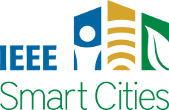September 2023
Smart Cities September eNewsletter - Sustainability in Smart Cities
For a downloadable copy of this eNewsletter, please visit the IEEE Smart Cities Resource Center.
Resource Center Update: Improved user experience for IEEE members! Access/Download free products without a checkout process.
Written by Sumit Gerela
Modern technology has the potential to make cities smarter and more sustainable. Smart applications can read data from multiple sensors, use location services and weather data, and even integrate with city official data to provide real-time insights that can help cities become more efficient and environmentally friendly. For example, smart applications can holistically monitor energy consumption and subsequently identify opportunities for conservation, collect information on waste generation and disposal, manage water resources, prevent pollution, and provide real-time information to residents about environmental conditions. Smart applications will help cities reduce their environmental impact and improve the quality of life for their residents. By providing users with rewards for making sustainable choices, smart applications can further incentivize people to contribute to their cities. In addition to the aforementioned benefits, these applications can also help to build trust between city officials and residents. By harnessing the power of data and technology, cities can become more efficient, environmentally friendly, and livable for their residents. The new application of this concept is SaaS: Smart Applications As Service.
Written by A. Gandhimathinathan
Exploring the transformative potential of Artificial Intelligence (AI) in revolutionizing waste management systems for enhanced sustainability, resource efficiency, and environmental preservation, this study delves into the innovative applications of AI technologies in waste collection, sorting, recycling, and overall waste optimization. Furthermore, it also highlights the pressing challenges posed by mounting waste generation, limited landfill space, and environmental pollution. This article emphasizes the urgent need for smarter waste management solutions to mitigate the adverse impacts on the planet and on human health. To address this, we introduce AI's significant contributions to waste collection. AI-driven systems enable real-time data analysis from sensors and smart bins, predicting waste levels and optimizing collection routes. This dynamic approach reduces fuel consumption, minimizes carbon emissions, and enhances overall waste collection efficiency.
Written by Balázs Barta, Márton Barta, and Tamás Gyulai
The European Union is guiding cities towards a more strategic approach to boost their competitiveness in the realm of digitalization. One of the initiatives that spearheaded this shift was the Intelligent Cities Challenge (ICC), which brought together 136 cities between 2020 and 2022 to achieve smart, socially responsible, and sustainable growth through advanced technologies. The ICC participant city of Szombathely was the only city in Hungary that provided scope for strategic development that emphasized cross-border cooperation and international networking in the development of digital innovation hubs.
Consequently, this paper demonstrates that digital innovation centers can play an important role in the life of a modern city as actors of spatial planning and promoters of responsible innovation, according to EU guidelines and international practice.
To have the eNewsletter delivered monthly to your inbox, join the IEEE Smart Cities Community.
Past Issues
To view archived articles, and issues, which deliver rich insight into the forces shaping the future of the smart cities. Older eNewsletter can be found here. To download full issues, visit the publications section of the IEEE Smart Cities Resource Center.



